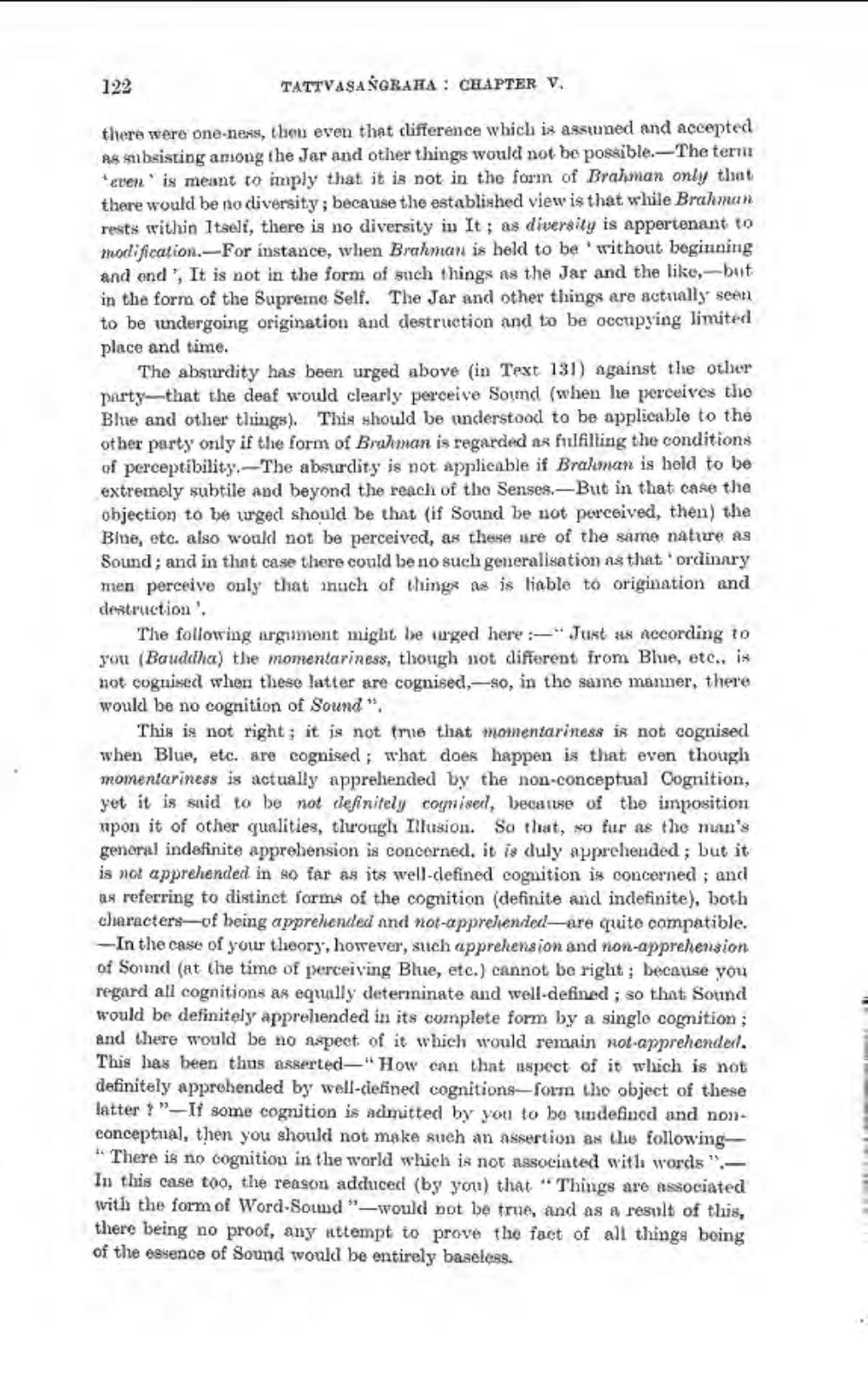________________
122
TATIVASANGRAHA : CHAPTER V.
there were one-ness, theu even that clifference which is assumed and accepted As subsisting among the Jar and other things would not be possible. The term
even is meant to imply that it is not in the form of Brahman only that there would be no diversity ; because the established view is that while Brahman rests within itself, there is no diversity in It; as diversity is appertenant to modification. For instance, when Brahman is held to be without beginning and end ', It is not in the form of such things as the Jar and the like, but in the form of the Supreine Self. The Jar and other things are actually seen to be undergoing origination and destruction and to be occupying limited place and time.
The absurdity has been urged above (in Text 131) against the other party-that the deaf would clearly perceive Sound (when he perceives the Blue and other tliings). This should be understood to be applicable to the other party only if the form of Brahman is regarded as fulfilling the conditions of perceptibility.-The absurdity is not applicable if Bralıman is held to be extremely subtile and beyond the reach of the Senses. But in that case the objection to be urged should be that (if Sound be not perceived, then) the Bine, etc. also would not be perceived, as these ure of the same nature as Sound, and in that case there could be no such generalisation as that ordinary men perceive only that inuch of things as is liable to origination and destruction'.
The following argument might be surged here :-“ Just as according to you (Bauddha) the momentariness, thongh not different from Blue, etc., is not cognised when these latter are cognised, -40, in the same manner, there would be no cognition of Sound"
This is not right; it is not true that momentariness is not cognised when Blue, etc. are cognised; what does happen is that even though momentariness is actually apprehended by the non-conceptual Cognition, yet it is said to be not definitely cogniserl, because of the imposition upon it of other qualities, through Illusion. So that, so fur as the man's general indefinite apprehension is concerned, it is duly apprehended ; but it is not apprehended in so far as its well-defined cognition is concerned ; and as referring to distinct forms of the cognition (definite and indefinite), both characters-of being apprehended and not-apprehended-are quite compatible. -In the case of your theory, however, such apprehension and non-apprehension of Sound (at the time of perceiving Blue, etc.) cannot be right; because you regard all cognitions as equully determinate and well-defined; so that Sound would be definitely apprehended in its complete form by a single cognition; and there would be no aspect of it which would remain not-apprehendeil. This has been thus asserted- How can that aspect of it which is not definitely apprehended by well-clefined cognitions-form the object of these latter ? "- If some cognition is admitted by you to be undefined and nonconceptual, then you should not make such an assertion as the following
There is no cognition in the world which is not associated with words": - In this case too, the reason adduced (by you) that "Things are associated with the form of Word-Sound "_would not be true, and as a result of this, there being no proof, any attempt to prove the fact of all things boing of the essence of Sound would be entirely baseless.




